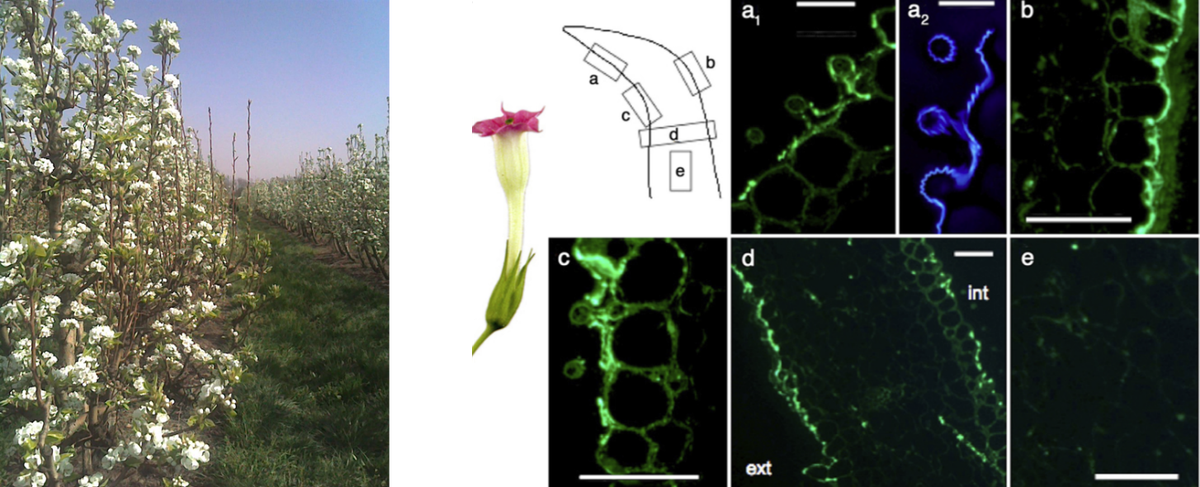
The group performs research on reproductive plant biology, with emphasis on the apical growth mechanisms of pollen tubes and pollen interactions with female tissues in several species, especially food crops. Pollen is also studied as vector of allergenic proteins, some of which involved in reproductive mechanisms. Responses to environmental stresses and biotechnological applications represent promising research lines. Control of fertilization is important in the reproductive biology of plants with hermaphrodite flowers. The mechanisms that prevent self-fertilization, such as self-incompatibility (SI), affect both quantitative and qualitative aspects of productivity in some important fruit species, . In citrus fruit, and particularly in clementines, gametophytic self-incompatibility (GSI), when associated with parthenocarpy, determines the development of seedless fruits, particularly appreciated by consumers. In the Pyrinae (e.g., apple and pear), GSI is, instead, a factor which not only limits the productivity of orchards, but also hampers breeding programs as it reduces the possibility of crossing selected varieties. Understanding the mechanisms involved in the control of GSI in these species will allow the rational design of orchards for clementine and the selection of self-compatible apple and pear genotypes with increased productivity and value. The research is multidisciplinary and relies on the integration of genomic, transcriptomic, proteomic and cyto-histological approaches.